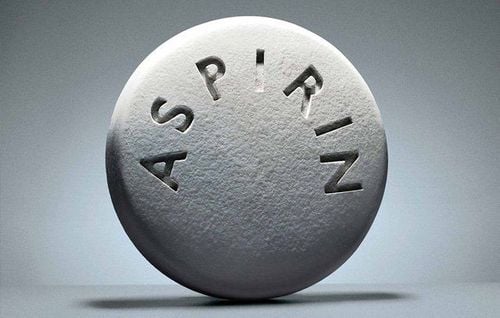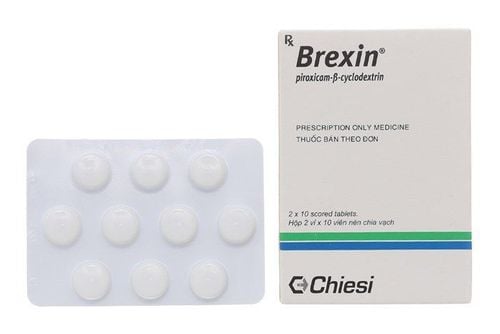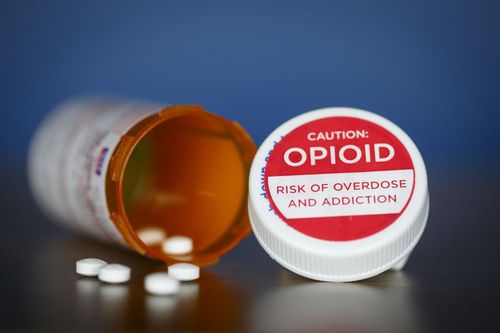This is an automatically translated article.
Pain relievers bring quick effect, especially drugs containing Paracetamol. However, patients need to know how to use pain relievers to get the best results.
1. Common pain relievers
1.1. Over-the-counter pain relievers (OTC) Over-the-counter pain relievers work to relieve minor pain such as headache, fever, cold, toothache, menstrual pain, flu, arthritis,...
Yes 2 Over-the-counter pain relievers include non-steroidal anti-inflammatory drugs (NSAIDs) and paracetamol (Acetaminophen).
Acetaminophen has the activity of more than 600 prescription and non-prescription drugs (including pain relievers, cough medicines, cold medicines,...); Non-steroidal anti-inflammatory drugs (NSAIDs) are commonly used drugs to reduce fever and mild pain, such as naproxen, aspirin, ibuprofen, and many others used to treat colds, allergies, and sinusitis.
1.2. Prescription pain relievers Common prescription pain relievers include opioids and non-opioid drugs. Opioids are very powerful. They work by acting on the brain, spinal cord, and gastrointestinal tract and can, in turn, alter pain perception.
Prescription pain relievers are usually of the following types:
Morphine: commonly used before and after surgery; Oxycodone: commonly used to relieve moderate to severe pain; Codeine: often combined with paracetamol or other non-opioid analgesics. Usually prescribed for mild to moderate pain; Hydrocodone: often combined with paracetamol or other non-opioid analgesics. Usually prescribed for moderate to severe pain.

Morphine là thuốc giảm đau kê đơn
2. Use pain relievers rationally and properly
2.1. How to use pain relievers properly? How pain relievers are used is not something everyone knows. In fact, pain relievers are only effective with safety when used correctly and as prescribed. If used improperly, pain relievers can cause serious harm to the body and can even lead to death.
Therefore, you must use pain relievers according to the doctor's instructions, do not arbitrarily change drugs as well as give others to use your drugs.

Sử dụng thuốc giảm đau theo chỉ dẫn của bác sĩ
2.2. Special precautions when using pain relievers For the following types of pain relievers, special precautions are required:
2.2.1. Acetaminophen (paracetamol) Overdose can be life-threatening; Taking too much can seriously damage the liver, even lead to death, especially when users use alcoholic beverages while taking drugs containing Acetaminophen at the same time; Be careful when using the drug for children, it is necessary to consult carefully with the doctor. 2.2.2. NSAIDs Potentially causing users to have stomach bleeding, especially those who are about 60 years old or older or have a history of inflammatory diseases, ulcers, stomach bleeding; The risk of kidney disease is high for people who are taking diuretics, have high blood pressure, have heart disease or have pre-existing kidney disease, and people 60 years of age or older. 2.2.3. Opioids When used can cause drowsiness, so do not use machines or drive a car while taking the drug, especially when the patient is just starting to take the drug for the first time;

Opioid có thể gây buồn ngủ cho người dùng
Each person has a unique dose, what is normal for you may be an overdose for someone else. Therefore, do not use anyone's medicine or let anyone use your medicine. Patients should talk to their pharmacist, doctor or healthcare professional when you have questions about pain relievers, especially before taking them in combination with supplements or over-the-counter medications. .
Reduce the risk of drug interactions by not combining opioids with alcohol, barbiturates or benzodiazepines. All of the above will slow breathing, and their combined effects can lead to respiratory failure and be life-threatening.
In addition, patients should not bite or break pain relievers as this can change the rate at which the drug is absorbed into the body and lead to overdose or even death.













